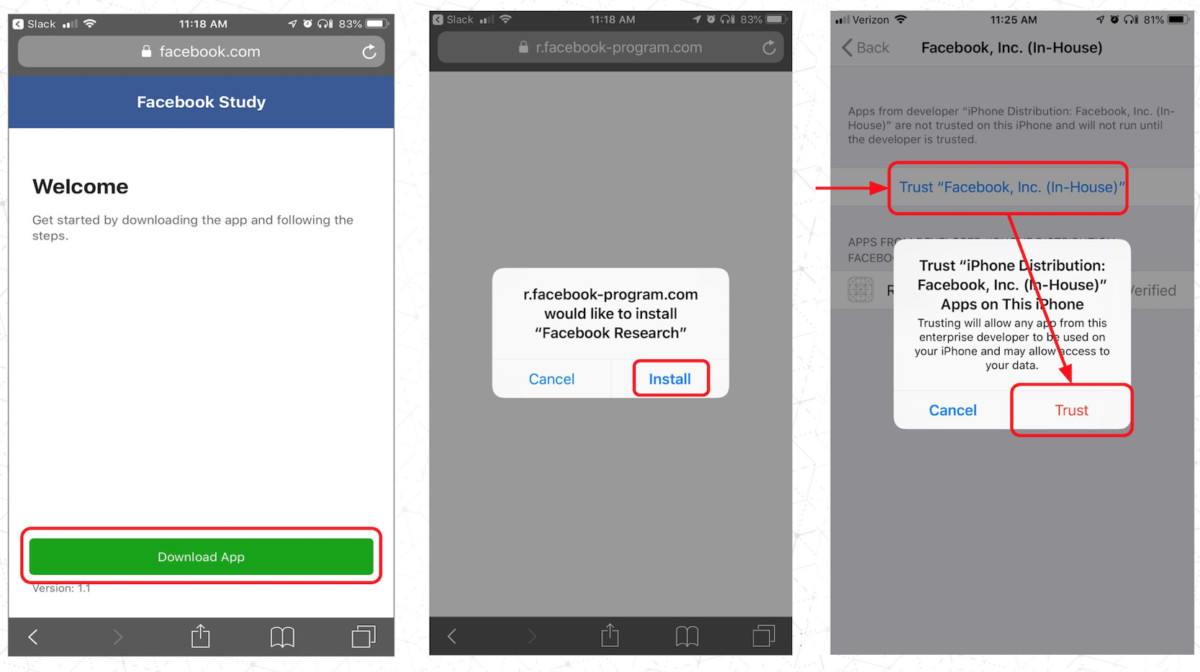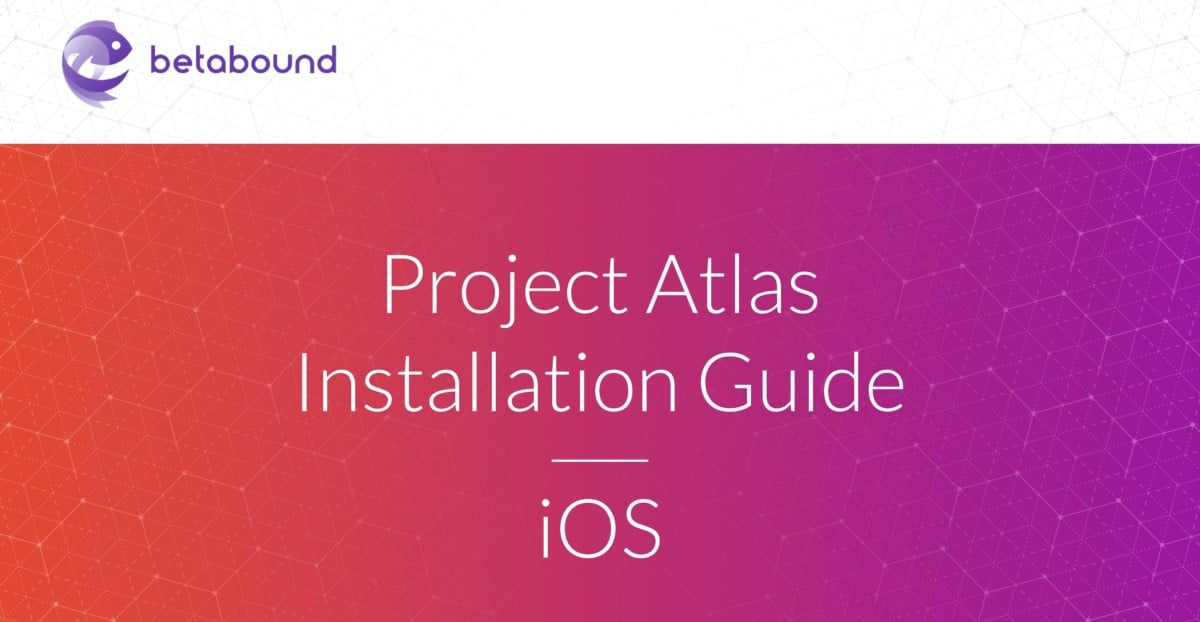Facebook paid users (including minors) to spy on them quietly
A TechCrunch survey reveals that Facebook has paid users to install an extremely intrusive application on their smartphones . The app in question could collect countless sensitive data on their uses.
In 2018, Facebook found itself in the spotlight ... but not for the right reasons. Mark Zuckerberg's company has been involved in a variety of compromising cases - including the Cambridge Analytica scandal - all too often involving users' private data. But we changed year and 2019 should have announced under new auspices.
Unfortunately for Facebook , the firm is again entangled in a sensitive business. TechCrunch reveals that the company paid $ 20 a month for users aged 13 to 35 to install the Facebook Research app on Android and iOS. The app in question is a VPN that can be likened to a data vacuum cleaner scanning the activities of those concerned both on the web and on the phone.
Massive access to data
According to the TechCrunch survey, this program was called Project Atlas and allowed Facebook to learn more about new Internet trends and its competitors around the world.
At the request of the US media, Will Strafach, an expert in computer security has delved into the application Facebook Research and explains the following:
If Facebook makes full use of the levels of permissions given to it during installation, they will be able to continually collect these different types of information: private messages in social networks, chats from instant messengers - including photos and videos sent to other people -, emails, web searches, internet browsing activity and even real-time location data by tapping into the feeds of any geolocation app you have installed.
In other words, even though we do not yet know which data was of particular interest to Facebook, the company enjoyed extensive access to these data. The application Facebook Research actually encouraged users to install a root certificate, which Will Strafach finds particularly astounding. " ... most users are not able to reasonably consent, regardless of the agreement they sign, because there is no good way to clearly express the power that is granted to Facebook when you do that, "he says.
Facebook Research has been around since at least 2016 and is deployed on beta release services like BetaBound, uTest and Applause. This allowed to partially hide the implication of Facebook in this project which was named "Atlas" towards 2018.
B services
Facebook is not at his first attempt
This is not the first time that Facebook has been conducting an operation of this kind. The group has already tried to do more or less the same thing via its Onavo service bought in 2014. Nevertheless, under pressure from Apple, the application had to be removed from the App Store in 2018.
Despite this first sanction, Facebook has returned to the charge with Facebook Research even though this platform is still against the rules established by Apple. Facebook ended up telling Tech Crunch that the iOS version of the application was going to be deleted.
Tim Cook had not been tender in these criticisms in 2018 against Mark Zuckerberg. This is a new business that will not warm their relationship. As for the Android version of the application pointed here, no concrete information was given.



